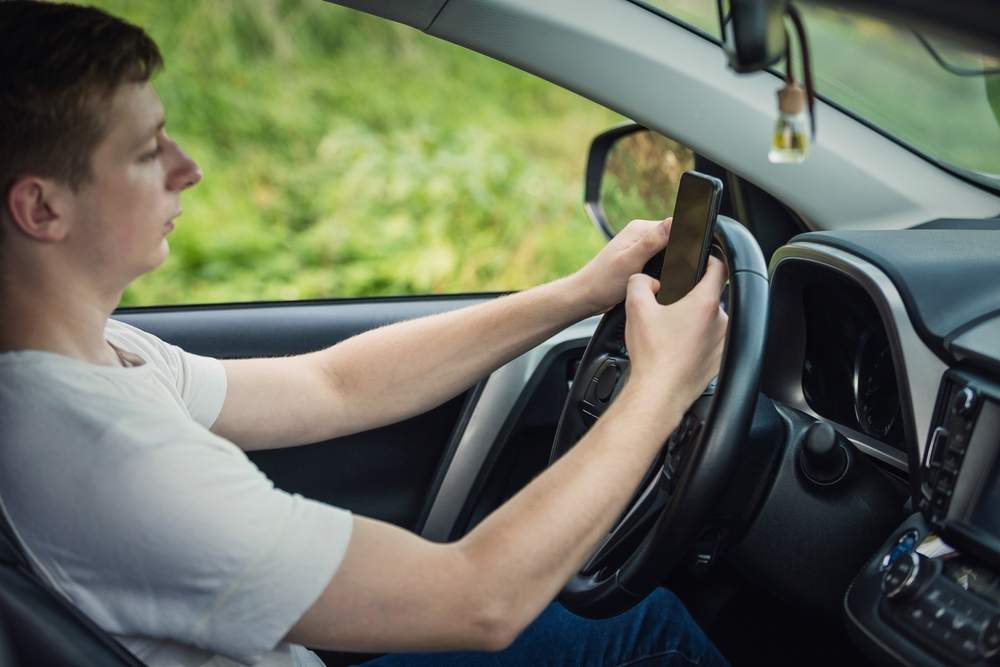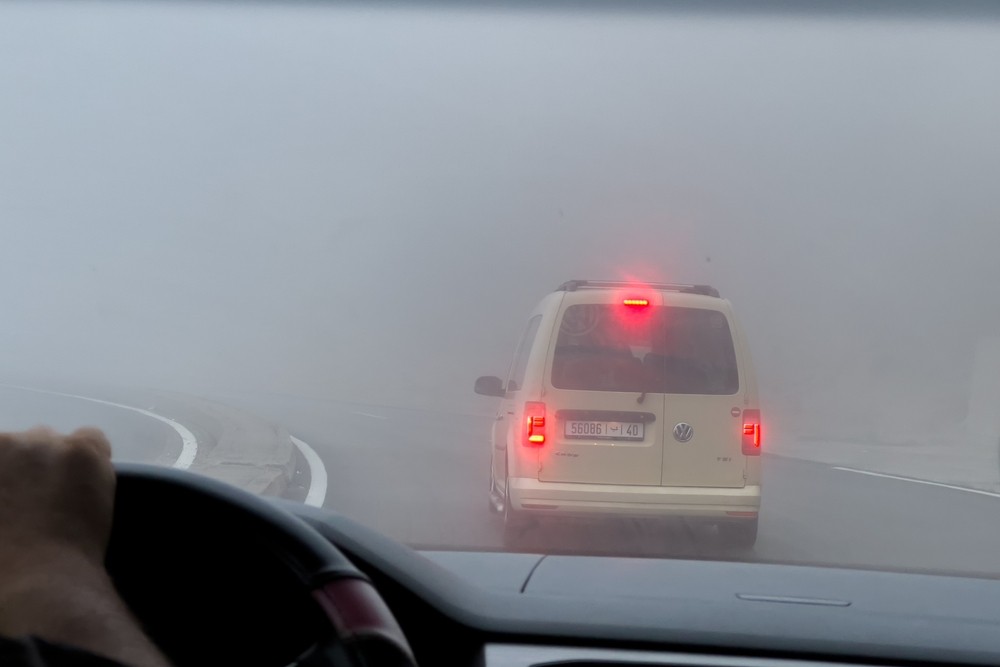 Millions of car accidents happen each year in the United States, ranging from minor fender-benders to multi-vehicle pileups. While some car accident causes can be out of the driver’s control, there are many things we can do as drivers and passengers to make the roads a safer place for everyone. Whether you drive on four-lane highways every day as part of your commute or mainly take the backroads, car accidents can happen anywhere. While some car accidents can thankfully result in zero injuries, many people end up experiencing some kind of pain, soreness, or stiffness after being involved in a traffic accident. Each year, a growing percentage of accidents result in life-threatening car accident injuries or fatalities. Here are the ten most common causes of car accidents and what to do if you get into a wreck.
Millions of car accidents happen each year in the United States, ranging from minor fender-benders to multi-vehicle pileups. While some car accident causes can be out of the driver’s control, there are many things we can do as drivers and passengers to make the roads a safer place for everyone. Whether you drive on four-lane highways every day as part of your commute or mainly take the backroads, car accidents can happen anywhere. While some car accidents can thankfully result in zero injuries, many people end up experiencing some kind of pain, soreness, or stiffness after being involved in a traffic accident. Each year, a growing percentage of accidents result in life-threatening car accident injuries or fatalities. Here are the ten most common causes of car accidents and what to do if you get into a wreck.
10 Common Car Accident Causes
A car accident can happen to anyone: new drivers, older adults, families with children in the car, motorcyclists, and even professional race car drivers. Here are the ten common car accident causes and steps you can take to reduce the risk of these types of traffic incidents.
Speeding
Speeding is typically considered the number one cause of car accidents each year. Roads have set speed limits for several reasons, with the primary goal of keeping the roads safe for travel. When other cars around you are following the speed limit but you are speeding, you put yourself and other drivers at risk. Speed limits help reduce the differences in speeds between cars so the traffic can flow more effectively. A driver speeding along a highway or speeding through an intersection can end up causing a car accident. Additionally, drivers are more likely to lose control of their vehicle when moving at higher speeds, and speeding can reduce your reaction time, resulting in an accident. Car wrecks caused by speeding drivers are also much more likely to be in serious accidents with injuries involved.
Distracted Driving
Distracted driving is quickly battling it out for the top cause of car accidents in the United States every year. Distracted driving refers to a variety of incidents and situations, including a driver who is distracted by a phone call, texting, or even other passengers in the vehicle. Cell phones can be quite a distraction for many drivers and can cause drivers to take their eyes off the road. Even with the increase in technology making phone calls and messaging easier with hands-free options, you can still be distracted by focusing on a conversation instead of the road in front of you. Additionally, passengers in the vehicle could become distracting or cause you to take your eyes off the road. Reaching for objects in the car, like the passenger seat or behind your seat, can also cause a distraction or cause you to lose control of the car, resulting in a car accident.
Impairment
Driving under the influence of alcohol or drugs is widely known to be a cause of car accidents each year. However, drivers continue to get behind the wheel even when they are impaired. Sometimes a driver might have one or two drinks and decide they are fine to drive, but even some alcohol in your system can limit your ability to make clear decisions and think quickly on your feet. This can result in the inability to react in enough time to a traffic incident or road hazard around you. Impaired driving can also refer to those who have both legal or illegal drugs in their system. Along with illegal substances, even legal medications can come with risks or side effects that may slow down your coordination, reaction times, or even impair your judgment.
Tailgating
Tailgating is the number one cause of fender-benders and rear-end collisions. Tailgating refers to when a driver gets too close to the car in front of them. Driving too closely behind another car can significantly reduce the time you have to react to sudden changes in traffic patterns or road hazards. If the car in front of you needs to slow down or stop suddenly and you’re driving too closely behind them, you risk crashing into their car and putting both of you at risk for injuries. The risk of car accidents significantly increases when drivers do not have as much time to react to their surroundings and keep themselves and those around them safe.
Switching Lanes
Everyone needs to switch lanes from time to time, like when you are driving down the highway and need to get to the exit ramp or driving down a four-lane road and need to turn left into your grocery store parking lot. However, blind spots, speeding cars, and heavy traffic can make it challenging or even dangerous to switch lanes. Frustrated or aggressive drivers may suddenly switch lanes to avoid a car going at a slower rate of speed in front of them. Swerving too quickly or without signaling into another lane can end up causing an accident.
Failure to Yield
Failure to yield refers to a situation where the driver does not yield the right of way to another driver, pedestrian, or bicyclist, which can result in a collision or accident. A common example of failure to yield is when a left turn lane has a flashing yellow light, meaning the driver can turn left but must first yield to any oncoming traffic. If a driver in the opposite lane is going straight, that driver gets the right-of-way in this situation. Other examples of failure to yield include merging onto the highway or when a driver moves from a private driveway into oncoming traffic.
Fatigue
Driving when you’re tired, drowsy, or otherwise fatigued can increase the risk of a car accident. When you’re tired, you lose the ability to respond as quickly to situations that occur around you. On the road, that can mean braking in time to avoid a slowdown on the highway or a hazard in the road. If you’re extremely tired and get behind the wheel, you risk dozing off or falling asleep while driving. If you’re tired enough to yawn or feel your eyes drooping, then you might want to rethink whether you should get behind the wheel. Fatigue can cause impairments similar to those of drivers who are under the influence of alcohol or drugs.
Car Defects
Regular maintenance isn’t just something to check off your list; it’s part of making sure you are as safe as possible. Sometimes car defects are out of your control, like a faulty airbag or a blown tire. Other examples of car defects include power steering failures, locked-up brakes, or electrical system problems. If your windshield wipers don’t work properly, you could have difficulty with visibility when it’s raining. If something falls apart or separates from the vehicle, it can cause you to lose control of the car and result in a car accident.
Bad Weather
 Bad weather can have a significant impact on road safety for all drivers on the road. Heavy rains can lead to poor visibility, especially if this occurs at night. Wet pavement can also lead to an increase in traffic accidents because suddenly hitting your brakes can cause you to skid if the pavement is wet. Snow and ice can also create hazardous conditions for drivers on the road. Ice can make roads and bridges dangerous to drive on, especially black ice, which can be hard to see at night. Extreme weather events like flooding can make roads undrivable, and drivers who attempt to drive through standing water can get into serious issues.
Bad weather can have a significant impact on road safety for all drivers on the road. Heavy rains can lead to poor visibility, especially if this occurs at night. Wet pavement can also lead to an increase in traffic accidents because suddenly hitting your brakes can cause you to skid if the pavement is wet. Snow and ice can also create hazardous conditions for drivers on the road. Ice can make roads and bridges dangerous to drive on, especially black ice, which can be hard to see at night. Extreme weather events like flooding can make roads undrivable, and drivers who attempt to drive through standing water can get into serious issues.
Nighttime Driving
Did you know that more car accidents happen at night than during the day? Driving at night can also lead to more car accidents because visibility is poor compared to daylight hours. At night, drivers are also more likely to be tired or fatigued, which can affect their ability to think clearly and respond quickly to sudden traffic changes. Some people suffer from vision issues when driving at night, including astigmatisms and compromised night vision. Lack of reflective signage, poor roadway lighting, and inadequate lane markings can also make it tricky to drive at night.
What to Do After a Car Accident
If you have been injured in a car accident, you should contact the authorities and seek emergency medical attention for any serious injuries. Even if you don’t think you were injured in the accident, you should get checked out by your local Tucker car accident doctors. At AICA Orthopedics, our team of car accident doctors diagnose and treat car accident injuries every day and know what signs and symptoms to look for, even if you haven’t started noticing any symptoms yet. In fact, it’s very common for symptoms of a car accident injury to take hours or even days to appear as you recover from the shock and adrenaline wreaking havoc on your body. Visit AICA Orthopedics in Tucker for quality, comprehensive care from a team of car accident doctors you can trust.
